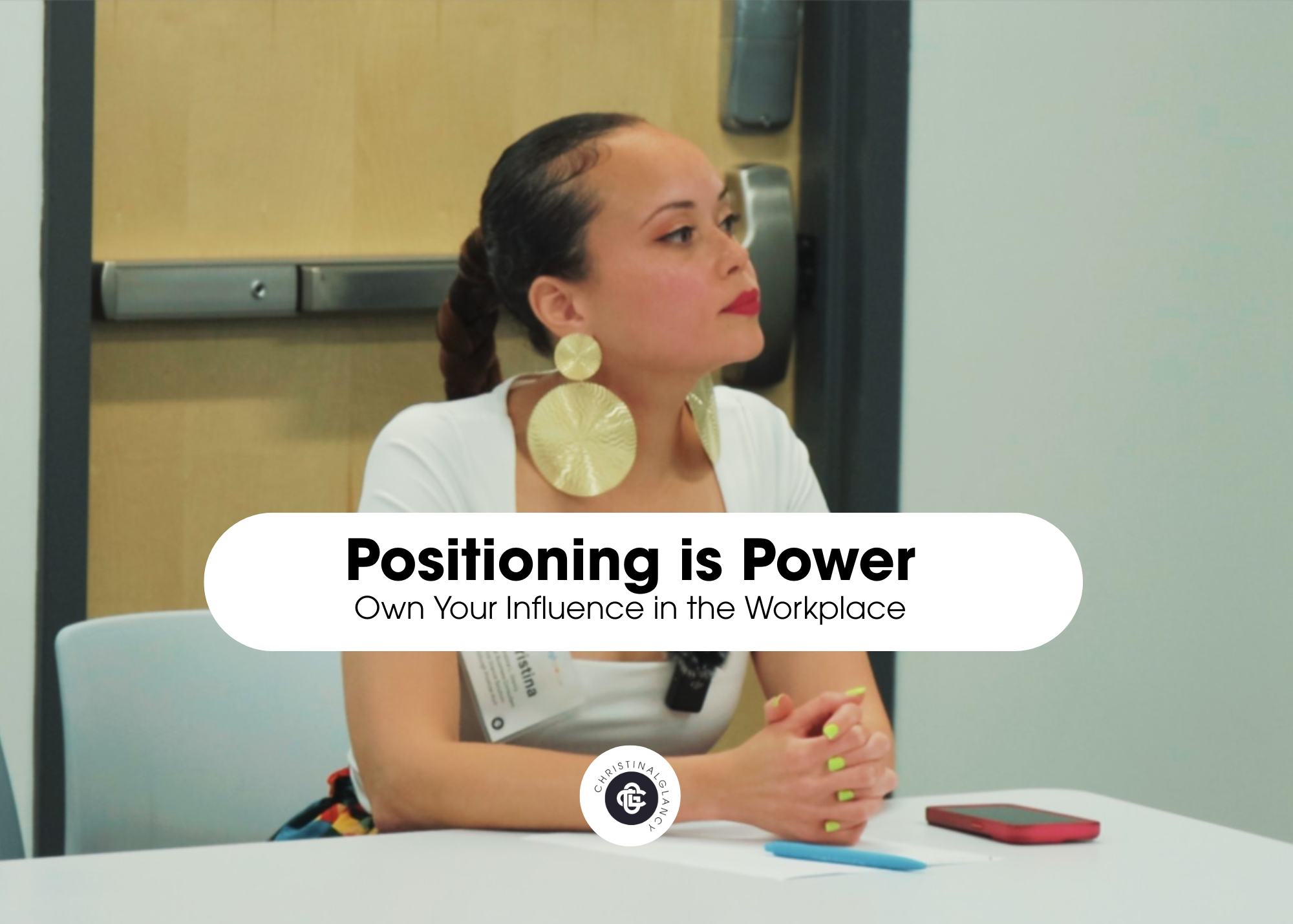Positioning is Power: The Keys to Owning Your Influence in the Workplace
t
Why Burnout Is the Conversation We Need to Have About the Future of Work
The digital age is rapidly unfolding and blurring the lines between personal and professionalism. Everything is driven by AI or hybrid models and promotes an always-on culture. The one topic that consistently gets sidelined in strategic conversations is burnout.
More than 70% of the workforce admits feeling it as outlined in DDI’s Global Leadership Forecast from 2023 and in 2025. Burnout ranks higher on a business's challenges list than employee retention. Let’s think about that for a second. There’s been a mass amount of layoffs since 2021 and burnout beats that.
I’m not just talking about the kind that leads to exhaustion or frustration, this burnout is the deeper kind that signals unsustainable systems, blurred boundaries, and outdated definitions of productivity.
Why Burnout Is a Future-of-Work Issue
Burnout isn’t just a personal failure to "manage stress." It’s often the result of systemic misalignment:
Workloads that reward over-functioning
Leadership models that glorify urgency
Cultures where rest is stigmatized and silence is normalized
And as automation takes over repetitive tasks, the work left to humans will require more creativity, empathy, and deep thinking. Most people think it will require less. AI is taking the weight of the logical parts of the tasks, not the human connection we are designed to desire. That type of humanness can’t happen in environments where people are running on fumes.
What the Future Demands
I am in rooms with early stage founders, leaders of startups, corporate executive leadership and middle managers. There’s growing awareness that the future of work isn’t about doing more. It’s about doing what matters better and more sustainably to keep the engine going.
In action, that means:
Building emotional sustainability into business strategy
Redefining productivity metrics to account for energy as it relates to output
Investing in capacity alongside performance
The pace of the digital age brings challenges all types of leaders sense of belonging, especially the ones who have been preparing and doing this work for a long time.
So hear me when I say this….
If You're in the Room, You're a Culture Shaper
Who you are and how you think is why you are in the room. It’s easy to go along to get along with groupthink. It takes extra effort and courage to go against the grain. I’d like to encourage you to recognize that the professional service roles you are training for is of middle class design. According to this University of Colorado on Socialization outlines that working class focuses on group think or the heard mentality. Middle class professionals who are successful succeed because they have a personal agenda and advance it with their career plans.
Bonus Tip: When you attend events, make sure you calculate the Return of Investment before you enter the building. See my video here.
Here’s the truth:
If we’re not designing our careers at a personal level to sustain and protect our performance then we are contributing to the problem.
Because the future of work will reward those who can go the distance. And distance requires design.
Add these gems 💎 to your Career Toolkit
Positioning is Power: The Keys to Owning Your Influence in the Workplace. Catch the replay here or tap the graphic below
On June 18, I led a leadership workshop for The Pittsburgh Promise to equip the next generation of Pittsburgh’s leaders to position themselves to avoid burning out and selling out in the digital age.
The participants in the room walked away with tips on avoiding burnout. Together we developed a new lens for building personal enterprises one that aligns performance with well-being, growth with groundedness, and ambition with longevity.
Career Game Plan: Building a career takes investment and preparation to be ready for opportunities that come your way. Use this game plan to do both.



